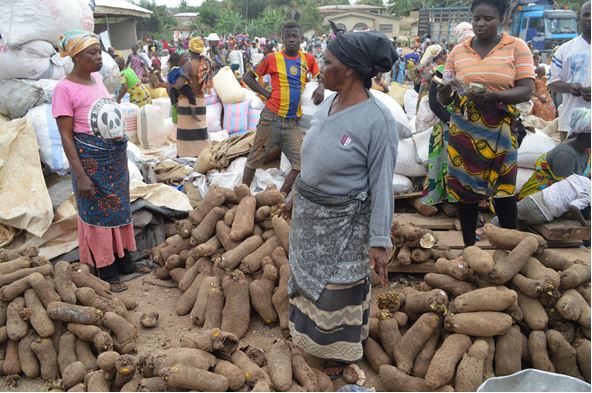Many developing countries are witnessing trends where indigenous knowledge systems are transforming to a commercial stage. This is exposing the myth that indigenous knowledge can remain pure and undiluted in the current rapidly globalizing world. The modern economy forces farmers, traders and other economic actors to contribute knowledge to their socio-economic networks. Every farmer or trader should control his or her own learning and belong to a network. Engaging with other value chain actors, especially those different from you, is the key to making sense of too much information whose volume and diversity is rapidly increasing.

Traditionally, African communities had tacit mechanisms for transferring skills from one generation to another. That is how career paths where forged, for example, children of farmers, artisans and blacksmith had important knowledge passed to them from their parents. There were no formal Small and Medium Scale Enterprises (SMEs) which enabled formal and informal knowledge exchange.
Retrenchments that have become a common feature of African economies over the past decades have resulted in many formal skills being offloaded onto the informal sector. For example, motor mechanics and metal fabrication are now part of the informal sector. Previously locked in formal systems, these skills are now being unpacked and applied in informal markets. This is leading to the integration of indigenous knowledge systems into formal knowledge sharing pathways. Since indigenous knowledge is more customer-oriented, it results in the production of needs-based products, tailor-made to meet the needs of diverse customers. For example, ploughs and hoes are made as per customer requirements unlike the previous mass production ethos in the formal sector which had little consideration for existing draught power dynamics in different farming communities.
The power of empathy
While mobile technology and social media can digitize some information, in many developing countries, more complex work still requires human interaction. In order to survive the current network economy that thrives on creativity, farmers and agricultural value chain actors have to create unique ways of working and connecting. This interaction ensures relationships are built on empathy. Technology and digital tools do not know empathy and why it is important. Yet, it is only by empathizing that value farmers and traders can truly understand their relationships and networks.
A standardized curriculum is completely inadequate for solving complex problems confronted in the agriculture sector daily. By creating new meaning through cooperation and building value with their peers, farmers, traders and consumers are becoming knowledge artisans. Implicit knowledge held by agricultural value chains requires constant interactions to make sense of it. Value chain actors have to explore different ways to curate information and a variety of ways to express themselves. They cannot continue using word of mouth or mobile technology alone. That is why community knowledge centres and communities of practice become critical in ensuring every actor develops his or her skills at their own pace until things start making sense. Most farmers do not immediately use all the information they get from a workshop before making sense of it.
Importance of getting out of echo-chambers
Reliable agricultural knowledge networks should provide farmers and other actors with a diversity of views. They have to ensure more signal and less noise in their networks. This means identifying and supporting the creation of trusted communities of practice for testing out new ideas and ways of working. For all this to happen, farmers and other value chain actors need to get outside of their current knowledge bubbles and echo-chambers. In a society that is increasingly becoming digitally-mediated, each economic value chain actor has to be informed through active engagement.
Nothing prevents farmers from consciously developing their own expert networks that they trust. This will simplify their sense making. Without personal knowledge networks, farmers are at the whim of whatever information is flowing through social media platforms. They need capacity to see the value of understanding viewpoints that diverge from their own. Unfortunately, in most rural farming communities, close-knit social groups cannot give farmers the diversity of knowledge they need to navigate the complexities of the current networked economy. Simple solutions are no longer enough in confronting complex challenges such as climate change.
charles@knowledgetransafrica.com / charles@emkambo.co.zw / info@knowledgetransafrica.com
Website: www.emkambo.co.zw / www.knowledgetransafrica.com
eMkambo Call Centre: 0771 859000-5/ 0716 331140-5 / 0739 866 343-6
